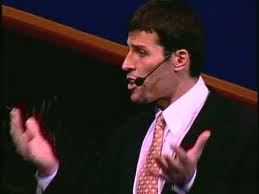By Jonathan Miller, on Tue Jan 17, 2012 at 11:00 AM ET The RP‘s Second Defense
[The RP’s Provocation; Jason Atkinson’s Rebuttal #1; The RP’s First Defense: Jason Atkinson’s First Response; Artur Davis’ Rebuttal #2]
I disagree with Artur’s balancing of the equities when it comes to marijuana legalization, but it certainly is a reasonable conclusion (one that I used to share), and there simply isn’t the data yet to demonstrate the relative health benefits versus the relative health risks.
That’s one reason that the California Medical Association had called for legalization, to provide the wider clinical analysis to once and for all determine whether marijuana use is more good than bad, or vice versa.
But the equally compelling reason that I support legalization is the impact on our system of corrections and criminal justice, and as a former federal prosecutor, Artur, I’d love to hear your perspective.
Read the rest of…
The RPs Debate Legalizing Marijuana: The RP Defends
By Artur Davis, on Tue Jan 17, 2012 at 10:30 AM ET  Artur Davis: Rebuttal #2 Artur Davis: Rebuttal #2
[The RP’s Provocation; Jason Atkinson’s Rebuttal #1; The RP’s First Defense: Jason Atkinson’s First Response]
The arguments for legalizing marijuana turn on the idea that the risks are limited, or on a libertarian notion that individuals should have the license to weigh the risk for themselves.
I’ve yet to hear a case that an explosion of social marijuana use will improve public health, strengthen families or communities, or add to the public good in any measurable way. I’m dubious about ending a whole class of criminal laws with nothing positive to show for it.
There is certainly room to evaluate the defects in how marijuana laws are enforced; many judges and state level defense lawyers are convinced that minorities are more likely to face felony charges for marijuana related crimes, and that the system is replete with inconsistencies in how marijuana offenders are treated, for reasons rooted in class, race, geography, etc. That conversation ought to happen, but there is ample room to reform the disparities without throwing up our hands altogether.
Read the rest of…
The RPs Debate Legalizing Marijuana: Artur Davis Rebuts
By Jason Atkinson, on Tue Jan 17, 2012 at 10:00 AM ET  Jason Atkinson’s First Response Jason Atkinson’s First Response
[The RP’s Provocation; Jason Atkinson’s Rebuttal #1; The RP’s First Defense]
Alright, pour me a white russian and level with me Dude or your Dudeness, or uh, Duder, or El Duderino for whomever is not into the whole brevity thing.
The issue is should citizens smoke pot? The answer is no. It’s bad for you. So are alcohol, potato chips and too much tv, but what we are talking about is a drug for pain relief. Should pain drugs be made? Yes, and I’m open to the herb being part of that mix if treated like a drug.
The criminal element will not evaporate because it’s legal. Perfectly healthy people will not stop trying to get it because its legal.
 Many states are trying to stop kids from using Meth. One of the main ingredients of Meth is cold medication. Making that medication hard to get, drastically put a dent into meth production, increasing the street cost, and frankly making it too expensive to be a recreational drug. On the west coast, the cartels are now making and transporting Meth ( see my early post). Crime is crime. If it’s legal for the hurting, the healthy will be jones’n for it.
By Jonathan Miller, on Tue Jan 17, 2012 at 9:30 AM ET The RP‘s First Defense
[The RP’s Provocation; Jason Atkinson’s Rebuttal #1]
Jason Atkinson makes a powerful indictment of legalized medicinal marijuana from his unique vantage point as a legislator in a state (Oregon) that has gone this route.
I couldn’t agree more. As I argued in my initial post, legalizing medical marijuana is a half-measure that while well-intention creates some enormous complications for law enforcement and extraordinary challenges for physicians. That’s why in another state that has legalized medicinal marijuana, the California Medical Association has urged its legislature to move to full legalization.
This illustrates one of the key lessons I’ve learned from the sausage-making factory that is lawmaking. The middle-of-the-road approach that might test best in the polls can often have unintended consequences that create a situation that is worse than the original status quo. Jason vividly illustrates the consequences that Albert Camus spoke of when he said, “good intentions may do as much harm as malevolence if they lack understanding.”
Where I disagree with Jason is in his conclusion that the problems associated with medicinal marijuana suggest that full legalization would fail as well. Indeed, the horrible developments Jason outlines — “patients” gaming the system; medical cards being counterfeited; local law enforcement overwhelmed with violations; drug cartels moving in to handle the illegal traffic — all would be mitigated by full legalization.
If we implement a fully-legal, strictly-regulated domestic marijuana industry, we eliminate all of the crimes and frauds associated with trying to get around the proofs of medical need. No system will be perfect, and we will never be able to eliminate illegal activity. But the folks who fear legalization the most are the mobs and cartels who are getting rich as long as the drug remains legal. That’s the most important lesson the country learned in the Prohibition Era.
Jason does raise one concern that gnaws at me — the notion that marijuana is a gateway drug, a slippery slope to the use of harder drugs which I strongly agree must remain illegal. I’ve spoken to addicts too, and some suggest that the transition from pot to cocaine was made smoother by the fact that both were illegal — if I can handle one illegal drug, I can handle all. Under that reasoning, if we legalize cannabis, the connection is eliminated.
I concede I could be wrong about the gateway issue, and I would love to see some scientific evidence on the issue. But regardless, I still believe the equities fall in favor of legalizing the drug.
By Jason Atkinson, on Tue Jan 17, 2012 at 9:00 AM ET  Jason Atkinson: Rebuttal #1 Jason Atkinson: Rebuttal #1
[Read The RP’s Provocation]
Pot is already legal, or at least hard to enforce beyond medical cardholders, in Oregon. I used to joke in my state camouflaged PVC pipe was sold in local hardware stores. (For those of you who don’t watch “Moonshiners” camo PVC is harder to see from the air.) Sadly though, when the voter’s legalized marijuana has almost become more than jokes.
Massive greenhouses have popped up across the landscape like a teenagers first outbreak of acne. What is not seen everyday is the hundreds of plants being grown with a single marijuana medical card or the thousands of plants being grown illegally by the cartels in the forests.
I understand the arguments from pain-management and from the economics of cutting the profit motive out, however those positions are too narrow for the reality of the modern herb industry:
- Marijuana is a gateway drug. Ask anyone in recovery.
- People on drugs, legal or illegal, should not be driving. From the highway to a forklift: Society pays the price.
- Medical cards are easier to get than fake ids. The ease of getting medical cards is the biggest problem and the hardest to get under control.
- People with grow cards can grow anywhere.
- Mexican drug cartels are using the illegal system to grow and distribute. (Do you think the cartel’s care about your Grandma’s glaucoma? Me neither.)
My local Sherriff does not have jurisdiction, or the manpower to even cruse the legal grow sites, let alone the illegal ones seen from air. Moreover, local law enforcement has no idea when they check on a complaint if they are walking into drug-induced hostility. DEA is trying to crack down, however every instance of a pot bust is with someone who has a card. Citizens call me daily complaining about the rental house in their neighborhood being used as a grow site and distribution.
Every one of these issues we’ve tried to change the law, but to not avail. The pot lobby is strong, well funded, and makes an emotional case for chronic pain. If it were only limited to chronic pain, needing a doctors prescription and manufactured like the drug that it is.
Look man, the Dude Abided- without a card. Lenny Kravitz confessed to Piers Morgan last month he walked around in “wall of fuzz” before he took action to get off the stuff. True the cat is out of the bag. Governments on the left coast need to step in.
However, I am hard pressed to call it a moral choice when the societal consequences are so overwhelming. This debate is akin to state’s getting into, then addicted to gambling. When morality comes crashing in that gambling hurts the poor, government’s answer is “gambling addiction help awareness TV commercials” paid for by lottery revenues.
By Jonathan Miller, on Tue Jan 17, 2012 at 8:30 AM ET Last week, we began a new tradition at The Recovering Politician: a great virtual debate among our recovering politicians; with provocations, rebuttals, responses, and defenses. This week, we ramped up the controversy level by tackling a highly explosive topic: legalizing marijuana. The RP starts off with his provocative article arguing the moral case for legalized cannabis. Tune in every half hour to read what other RPs have to say.
SPOILER ALERT: There will be fireworks.
This week, the contributing RPs take on The RP’s recent controversial call for legalizing marijuana in The Huffington Post. (As well as a Kentucky-centric version dedicated to Gatewood Galbraith, published in the Lexington Herald-Leader).
The RP’s Provocation:
While a recent Gallup poll revealed that a majority of Americans support legalizing marijuana, and Ron Paul — a proponent — has run well in the early GOP presidential primaries, most mainstream politicians still refuse to touch the subject, and many journalists continue to refer to legalization as a “radical” position.
It’s no wonder. The loudest voices for reform usually come from the political margins: the “hippie” Far Left and the libertarian Far Right. And while emanating from different directions, the two extremes share a similar credo: An out-of-control government has no business telling me what I can ingest.
A politically-influential cross-section of Americans, however, disagree. Many associate pot advocacy with the “anything goes” counter-culture of the 1970s that they blame for the decline of personal responsibility. Others worry that the logical extension of the philosophy could lead to legalizing “harder” drugs, prostitution, even polygamy. All of them — liberals, moderates, and conservatives — believe that there must be some moral standards established to guide public policy.
I’m part of that moral majority. But unlike Jerry Falwell’s version, my values system is based on the multi-religious mandate to “love your neighbor as yourself.” I’ve even written a book, The Compassionate Community, which applies Bible lessons and other religions’ texts to advocate for progressive policies that promote the common good.
And I’ve recently concluded that these same enduring moral values compel me to support legalizing marijuana.
Read the rest of…
The RPs Debate Legalizing Marijuana: The RP Provokes
By John Y. Brown III, on Mon Jan 9, 2012 at 4:00 PM ET  John Y.’s Closing Argument John Y.’s Closing Argument
[John Y.’s Provocation; The RP’s Rebuttal #1; Ron Granieri’s Rebuttal #2; Rod Jetton’s Rebuttal #3; Krystal Ball’s Rebuttal #4; John Y.’s First Defense; Rod Jetton’s Response #1; Jeff Smith’s Rebuttal #5; John Y.’s Second Defense; Ron Granieri’s Response #1; John Y.’s Third Defense; Artur Davis’ Rebuttal #6; Jeff Smith’s Response #1; Rod Jetton’s Response #2; Jason Atkinson’s Rebuttal #7]
Final counter, counter, counter rebuttal.
 I’ve enjoyed mixing it up and teasing it out—for fun and with friends. I’ve enjoyed mixing it up and teasing it out—for fun and with friends.
We’re all tired and need a wrap on this. Look, all I’m saying is that I won’t be surprised if Mitt Romney shows up at the next NH debate with a headset mic a la Anthony Robbins.
He can pull it off, look great, impress listeners. Heck, I’ll even buy his CD set. He’ll score points for fashion and suave, but lose votes—again.
Or, as Krystal Ball so succinctly put it, instead of convincing voters “he’s perfect” to be their next president, Mitt will seem “too good to be true.” A subtle but important distinction for recovering politicians.
So, no, Mitt probably doesn’t need to punch out Rick Santorum Tony Soprano style (even if he wants to). But he darn sure better muss his hair and stay away from headset mics as America focuses in to finally decides if Mitt is real enough — and not too good enough — to be president.
Remember, we voters can sometimes steal a page from Goldilocks, as we all look for the presidential candidate that is neither too big nor too small, neither too hot nor too cold. But just right. And just right for the times we face.
By Jason Atkinson, on Mon Jan 9, 2012 at 3:30 PM ET  Jason Atkinson: Rebuttal #7 Jason Atkinson: Rebuttal #7
[John Y.’s Provocation; The RP’s Rebuttal #1; Ron Granieri’s Rebuttal #2; Rod Jetton’s Rebuttal #3; Krystal Ball’s Rebuttal #4; John Y.’s First Defense; Rod Jetton’s Response #1; Jeff Smith’s Rebuttal #5; John Y.’s Second Defense; Ron Granieri’s Response #1; John Y.’s Third Defense; Artur Davis’ Rebuttal #6; Jeff Smith’s Response #1; Rod Jetton’s Response #2]
Some people just deserve good things in life. Ya, we know Mitt’s daddy owns the car dealership and got a Corvette for his 16th birthday, but after all, he looks like the quarterback. He is not like the rest of the kids in shop class, English, debate or pep-band. He is just a little better. He doesn’t have to one-up, he was born up.
In 1920, Warren Harding looked like Presidential timber too and campaigned on the thriller banner of “normalcy.” Some people just “got it go’n on.” Not like the rest of us who have had to pull our selves up the hard way, make hard calls, and pay the personal price for our political decisions. Mitt has always had someone else pay, or someone else’s money to pay. Mitt Harding has the look and was smart enough to choose the right parents. People want to have their picture taken with him, but don’t really want to talk to him, akin to taking picture at a car show.
So back to Harding: He looked like President, so let’s run him for President. The key to that borrowed historical back room quote is “who” is part of “let’s?” History showed us who with Teapot Dome.
Read the rest of…
The RPs Debate Presidential Leadership: Jason Atkinson Rebuts
By Rod Jetton, on Mon Jan 9, 2012 at 3:00 PM ET  Rod Jetton’s Second Response Rod Jetton’s Second Response
[John Y.’s Provocation; The RP’s Rebuttal #1; Ron Granieri’s Rebuttal #2; Rod Jetton’s Rebuttal #3; Krystal Ball’s Rebuttal #4; John Y.’s First Defense; Rod Jetton’s Response #1; Jeff Smith’s Rebuttal #5; John Y.’s Second Defense; Ron Granieri’s Response #1; John Y.’s Third Defense; Artur Davis’ Rebuttal #6]; Jeff Smith’s Response #1]
Jeff is so right about the difference between presidential races and state races. It is much easier for one candidate to have the resources to buy those down-ticket races.
While we have been asking about how a candidate is perceived by disinterested voters, I do think we should remember that the opposing campaign also has a chance to impact those perceptions. A good media buy with cutting ads can hurt a candidate. What the Bill Clinton camp did to Bob Dole in 1996 is a good example.
By Jeff Smith, on Mon Jan 9, 2012 at 2:30 PM ET  Jeff Smith‘s First Response Jeff Smith‘s First Response
[John Y.’s Provocation; The RP’s Rebuttal #1; Ron Granieri’s Rebuttal #2; Rod Jetton’s Rebuttal #3; Krystal Ball’s Rebuttal #4; John Y.’s First Defense; Rod Jetton’s Response #1; Jeff Smith’s Rebuttal #5; John Y.’s Second Defense; Ron Granieri’s Response #1; John Y.’s Third Defense; Artur Davis’ Rebuttal #6]
I think we should delineate between presidential elections and most other types — gubernatorial, House, Senate, etc. Presidential campaigns are exceptional. The candidates (especially in years like this when there are 38 debates) face a lot of scrutiny; they are inspected closely by the media, party activists, and to some extent rank-and-file voters (at least in the early states).
This, however, is not the case in most races. As long as candidates for House can raise $1-2M and candidates for US Senate or Governor can raise $5-10M, they can communicate effectively and thoroughly via TV ads. So I think that in those races the most important things are money, name ID, and surface likeability – as opposed to substantive ideas that can be put into action. This is because candidates with money are able to circumvent the press and the scrutiny of said ideas, and can saturate the airwaves with ads penned by others in which they mouth 30-60 seconds of reassuring bromides.
|
The Recovering Politician Bookstore
|










 Jason Atkinson
Jason Atkinson




